*Zie beneden voor de Nederlandstalige aankondiging. Bij dit programma zijn simultaantolken aanwezig.
Zoom: https://us02web.zoom.us/j/88530523000
Meeting ID: 885 3052 3000

Between the lines: Will uncovering erased voices change our notion of philosophy?
Until only a decade ago, it was common practice to claim that women had never made any significant contribution to the history of philosophy. They simply did not figure in the handbooks. Today we know better. We also know better where to look: not in handbooks and overviews, but in correspondences, in archives, in genres not generally recognized as ‘philosophical’, that is, between the lines of the canon of philosophy.
Today the work of many erased voices is being retrieved – female, non-western, and other voices excluded from the western canon – which leads to new questions about western culture and philosophy. Focusing on the space between the lines can have disruptive effects. Will it change our notion of philosophy, of thought, perhaps even of thinking?
For our Hypatia-lecture 2021, Ruth Hagengruber will address the question how the history of women philosophers is changing philosophy: “The stolen history: Retrieving the history of women philosophers and its methodical implications”. Subsequently our panelists will discuss the impact on the canon of ‘reading between the lines’.
May 8th online through Zoom:
14.30h – 17.00h CET
https://us02web.zoom.us/j/88530523000
Meeting ID: 885 3052 3000
Lecture: Ruth Hagengruber, professor of philosophy Universität Paderborn, director of the center History of Women Philosophers and Scientists
Panel: Ruth Hagengruber;
Monika Kirloskar-Steinbach, professor of philosophy, Universität Konstanz, professor of Diversifying Philosophy, Vrije Universiteit Amsterdam;
Chris Meyns, researcher in philosophy
Column: Joyce Pijnenburg, historian of women philosophers and western mystics
Chair: Liesbeth Schoonheim, postdoctoral researcher, Katholieke Universiteit Leuven
——————————————————————————————————————-
SWIP-NL Hypatialezing en panel 2021:
Tussen de regels: Verandert de ontsluiting van uitgewiste stemmen ons begrip van filosofie?
Nog maar tien jaar geleden was het heel gewoon om te stellen dat vrouwen geen bijdrage van betekenis hadden geleverd aan de geschiedenis van de filosofie. Ze stonden eenvoudigweg niet in de handboeken. Tegenwoordig weten we wel beter. En we weten ook beter waar te zoeken: niet in handboeken en overzichten, maar in briefwisselingen, archieven en genres die doorgaans niet als ‘filosofisch’ worden gezien – kortom, tussen de regels van de filosofische canon.
Nu het werk wordt opgediept van veel uitgewiste stemmen – vrouwelijke, niet-westerse, en andere stemmen die uit de westerse canon zijn weggelaten – komen ook nieuwe vragen op over westerse cultuur en filosofie. Aandacht voor de ruimte tussen de regels kan een ontwrichtend effect hebben. Verandert nu ook ons begrip van filosofie en van het denken?
In de Hypatia-lezing van 2021 zal Ruth Hagengruber ingaan op de vraag hoe de geschiedenis van vrouwelijke filosofen de filosofie aan het veranderen is. In het panel zal de vraag worden besproken welke invloed het ‘tussen de regels lezen’ op de canon heeft.
8 mei, online via Zoom
14.30u -17.00u
De voertaal is Engels, maar er zullen simultaantolken aanwezig zijn voor wie het programma in het Nederlands wil volgen. Met dank aan de Katholieke Universiteit Leuven.
Lezing: Ruth Hagengruber, hoogleraar wijsbegeerte, Universität Paderborn, directeur van het centrum History of Women Philosophers and Scientists
Panel: Ruth Hagengruber;
Monika Kirloskar-Steinbach, hoogleraar wijsbegeerte, Universität Konstanz, hoogleraar ‘Diversifying Philosophy’, Vrije Universiteit Amsterdam;
Chris Meyns, onderzoeker wijsbegeerte
Column: Joyce Pijnenburg, historicus van vrouwelijke filosofen en westerse mystici
Voorzitter: Liesbeth Schoonheim, postdoctoraal onderzoeker, Katholieke Universiteit Leuven


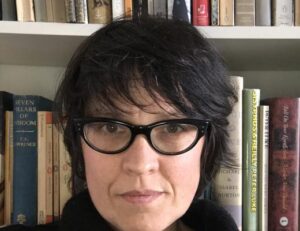
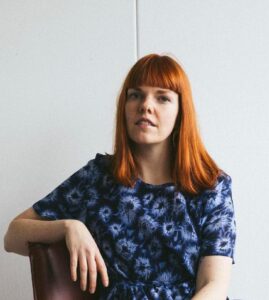
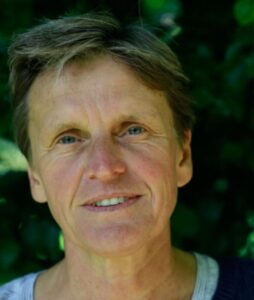

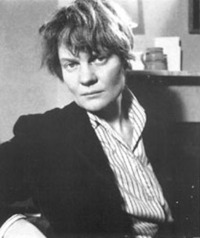

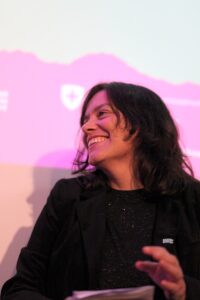

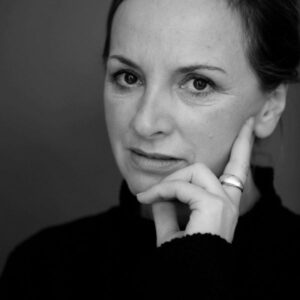

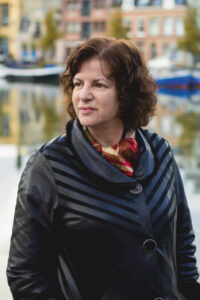 haar werk ‘
haar werk ‘